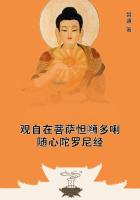Of the Dissolution of Government 211. HE that will, with any clearness, speak of the dissolution of government, ought in the first place to distinguish between the dissolution of the society and the dissolution of the government. That which makes the community, and brings men out of the loose state of Nature into one politic society, is the agreement which every one has with the rest to incorporate and act as one body, and so be one distinct commonwealth. The usual, and almost only way whereby this union is dissolved, is the inroad of foreign force ****** a conquest upon them. For in that case (not being able to maintain and support themselves as one entire and independent body) the union belonging to that body, which consisted therein, must necessarily cease, and so every one return to the state he was in before, with a liberty to shift for himself and provide for his own safety, as he thinks fit, in some other society. Whenever the society is dissolved, it is certain the government of that society cannot remain. Thus conquerors' swords often cut up governments by the roots, and mangle societies to pieces, separating the subdued or scattered multitude from the protection of and dependence on that society which ought to have preserved them from violence. The world is too well instructed in, and too forward to allow of this way of dissolving of governments, to need any more to be said of it; and there wants not much argument to prove that where the society is dissolved, the government cannot remain; that being as impossible as for the frame of a house to subsist when the materials of it are scattered and displaced by a whirlwind, or jumbled into a confused heap by an earthquake.
212. Besides this overturning from without, governments are dissolved from within:
First. When the legislative is altered, civil society being a state of peace amongst those who are of it, from whom the state of war is excluded by the umpirage which they have provided in their legislative for the ending all differences that may arise amongst any of them; it is in their legislative that the members of a commonwealth are united and combined together into one coherent living body. This is the soul that gives form, life, and unity to the commonwealth; from hence the several members have their mutual influence, sympathy, and connection; and therefore when the legislative is broken, or dissolved, dissolution and death follows.
For the essence and union of the society consisting in having one will, the legislative, when once established by the majority, has the declaring and, as it were, keeping of that will. The constitution of the legislative is the first and fundamental act of society, whereby provision is made for the continuation of their union under the direction of persons and bonds of laws, made by persons authorised thereunto, by the consent and appointment of the people, without which no one man, or number of men, amongst them can have authority of ****** laws that shall be binding to the rest. When any one, or more, shall take upon them to make laws whom the people have not appointed so to do, they make laws without authority, which the people are not therefore bound to obey; by which means they come again to be out of subjection, and may constitute to themselves a new legislative, as they think best, being in full liberty to resist the force of those who, without authority, would impose anything upon them. Every one is at the disposure of his own will, when those who had, by the delegation of the society, the declaring of the public will, are excluded from it, and others usurp the place who have no such authority or delegation.
213. This being usually brought about by such in the commonwealth, who misuse the power they have, it is hard to consider it aright, and know at whose door to lay it, without knowing the form of government in which it happens. Let us suppose, then, the legislative placed in the concurrence of three distinct persons:-
First, a single hereditary person having the constant, supreme, executive power, and with it the power of convoking and dissolving the other two within certain periods of time. Secondly, an assembly of hereditary nobility. Thirdly, an assembly of representatives chosen, pro tempore, by the people. Such a form of government supposed, it is evident:
214. First, that when such a single person or prince sets up his own arbitrary will in place of the laws which are the will of the society declared by the legislative, then the legislative is changed. For that being, in effect, the legislative whose rules and laws are put in execution, and required to be obeyed, when other laws are set up, and other rules pretended and enforced than what the legislative, constituted by the society, have enacted, it is plain that the legislative is changed. Whoever introduces new laws, not being thereunto authorised, by the fundamental appointment of the society, or subverts the old, disowns and overturns the power by which they were made, and so sets up a new legislative.
215. Secondly, when the prince hinders the legislative from assembling in its due time, or from acting freely, pursuant to those ends for which it was constituted, the legislative is altered. For it is not a certain number of men- no, nor their meeting, unless they have also ******* of debating and leisure of perfecting what is for the good of the society, wherein the legislative consists; when these are taken away, or altered, so as to deprive the society of the due exercise of their power, the legislative is truly altered. For it is not names that constitute governments, but the use and exercise of those powers that were intended to accompany them; so that he who takes away the *******, or hinders the acting of the legislative in its due seasons, in effect takes away the legislative, and puts an end to the government.















